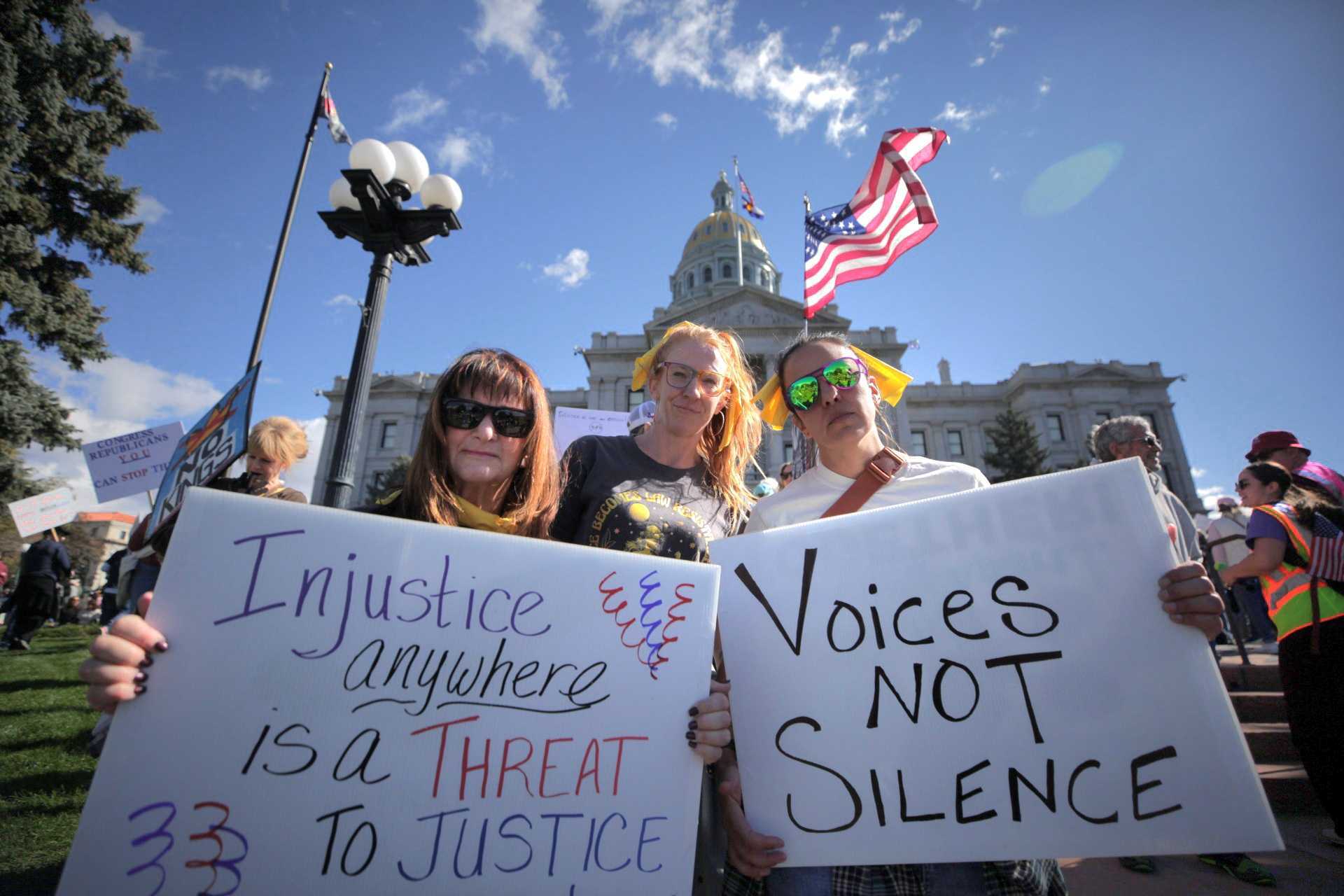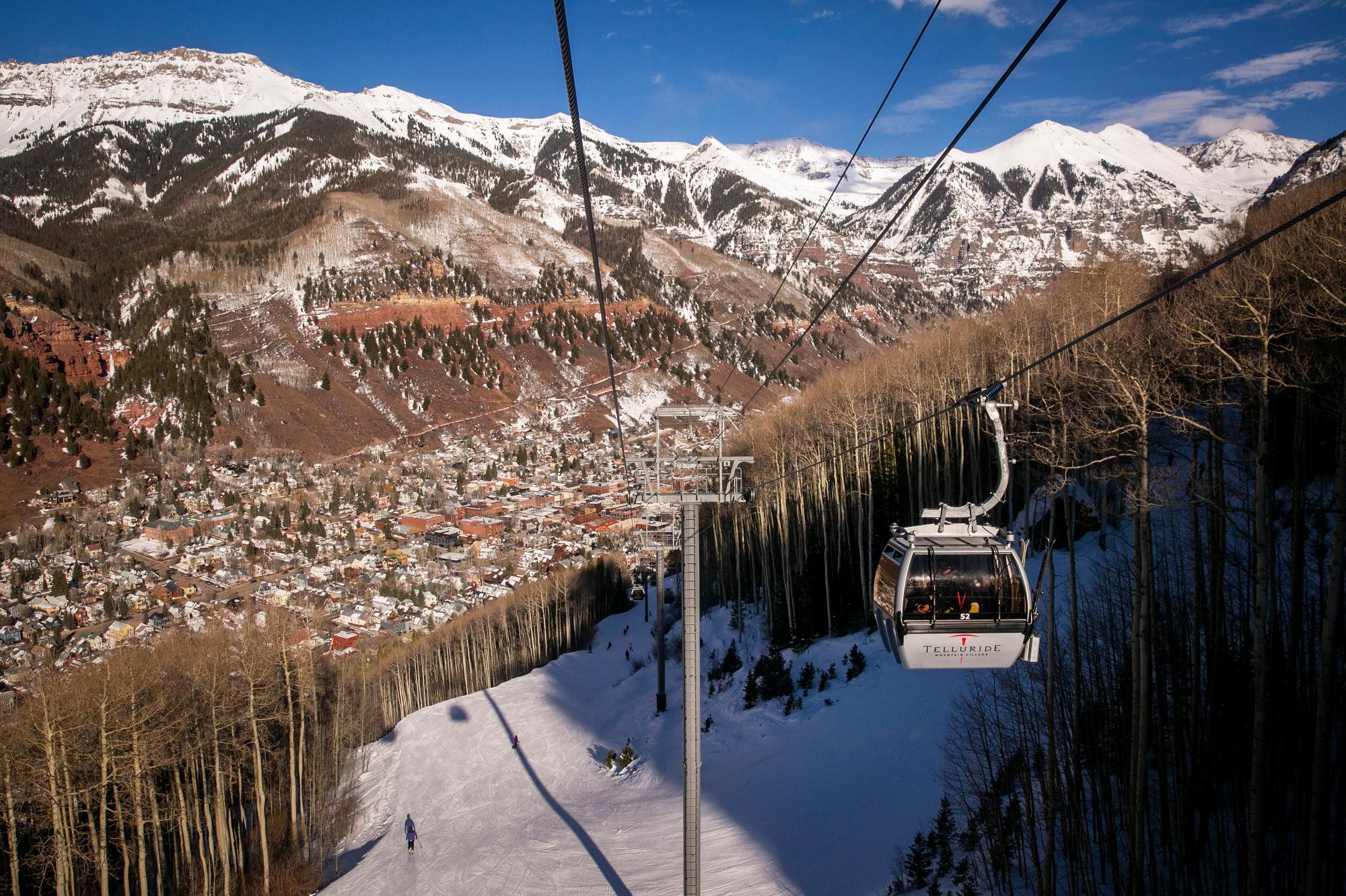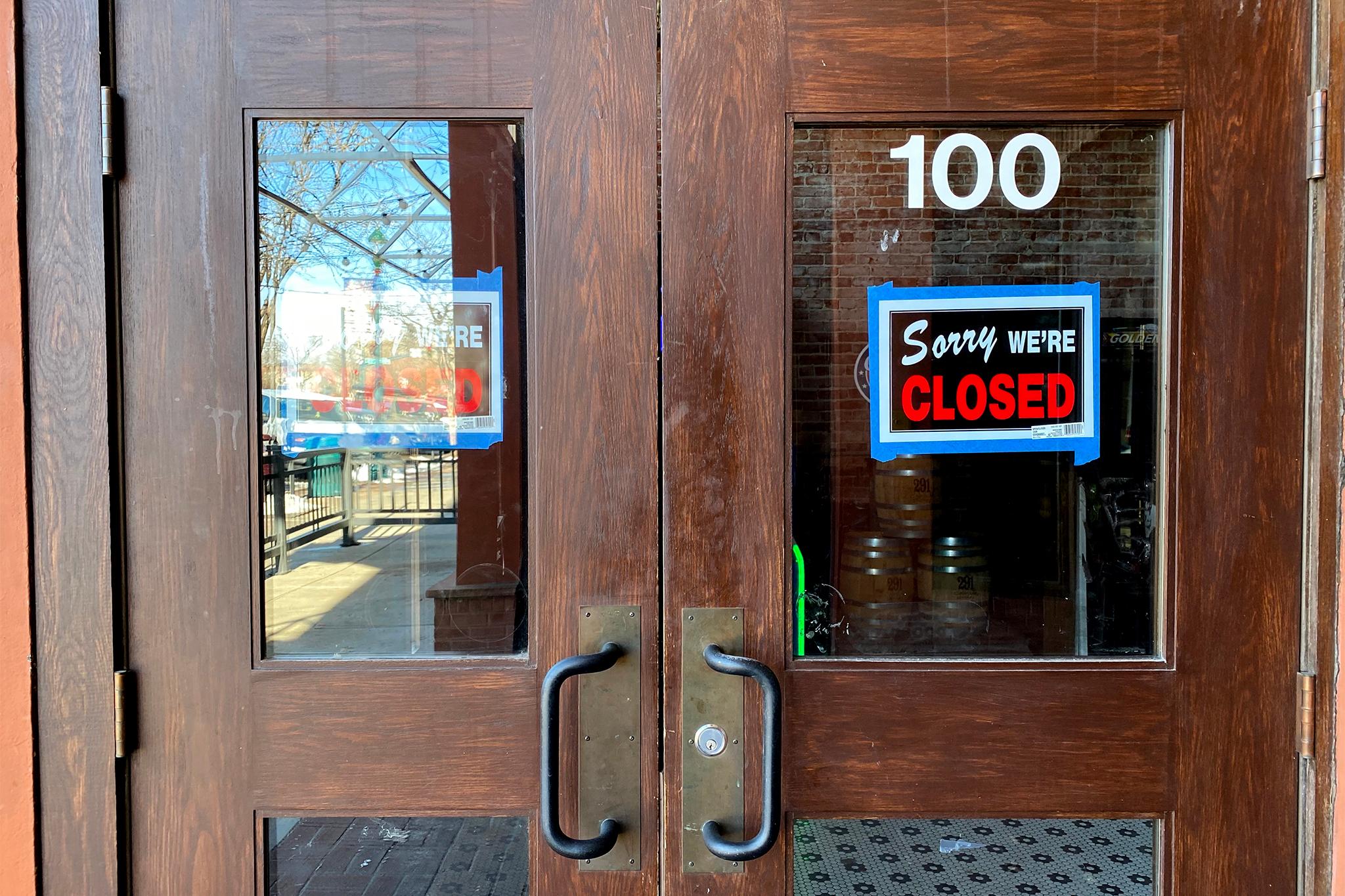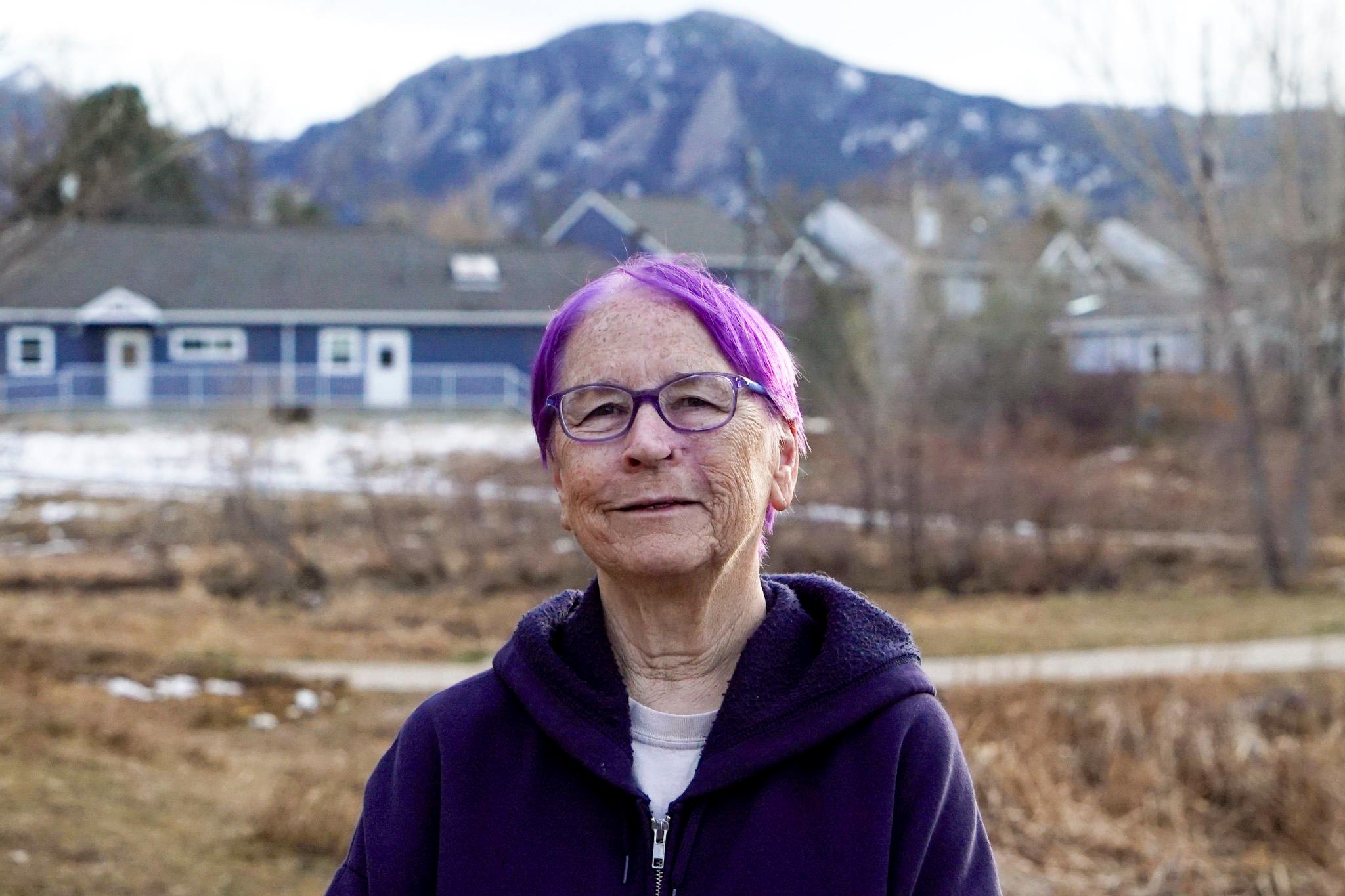
Colorado Attorney General Cynthia Coffman, a Republican candidate for governor, did not originally support the legalization of recreational marijuana. But now in the Washington Post she's warning the Trump administration that it's "too late" to dismantle the industry. "We have created thriving industries in marijuana legalization markets that need a place to go," she tells Colorado Matters.
Her comments come after U.S. Attorney General Jeff Sessions announced earlier in January that he would rescind an Obama era policy that had paved the way for legalized marijuana to flourish in Colorado and other states. Political push back on all sides from across the state was swift and steady.
Interview Highlights
Why she thinks it's too late to undo legal marijuana:
"We are too far into this now to say, 'Alright, simply because of a memo from the attorney general of the United States, which leaves the future somewhat uncertain, we'll stop what we are doing.' We can't stop. We have folks who have invested hundreds of millions of dollars in legitimate businesses depending on the Colorado state law to protect them as they made that investment."
On law enforcement groups opposed to legalization:
"I think we have known that we need several years of data before we can say with assurance what the trends are, and everyone is doing their very best to keep folks safe, to keep marijuana out of the hands of kids, which is certainly an important emphasis for me."
Would she support reducing marijuana from a Schedule 1 drug?
"I think the policy debate needs to take place, and appropriately in Washington where Congress can change the scheduling of marijuana. But they certainly have several states now that they can look to -- Colorado being the first to legalize recreational marijuana. Many folks have taken us up on our offer for information."
Full Transcript
Nathan Heffel: You're back with Colorado Matters from CPR News. I'm Nathan Heffel. It's too late to dismantle the marijuana industry. That's a headline from an op-ed by Colorado's Republican attorney general that ran in the Washington Post recently. Cynthia Coffman didn't support legalization, but she is sending a clear message to the Trump administration that the industry is here to stay. Attorney General Coffman, welcome to Colorado Matters. Attorney General Cynthia Coffman: Thank you very much. NH: I imagine it wasn't a coincidence that this was published in the Washington Post. Was the intention to send a message to Attorney General Jeff Sessions and the Trump administration to not go any further in changing its enforcement of marijuana? CC: That's it in part and to educate folks who are not from states that have legalized recreational marijuana about the issues that we are facing, because we can't bank this money and because we have created thriving industries in marijuana legalization markets that need a place to go. The idea of General Sessions withdrawing the guidance that had existed previously leaves us, in many ways, with a blank slate. NH: This piece came out right after Sessions' announcement that he was putting more control in the hands of US Attorneys to decide how to enforce marijuana laws in their states. You're clear in your op-ed that you did not support the legalization of recreational marijuana in Colorado, and yet you say it's too late to go back in legalization. Can you explain a bit more about why that is? CC: I believe that over the last few years, Colorado has been on the forefront of creating a regulatory framework that protects public safety and provides for the public's health. I think we still have work to do and lessons to learn, but we are too far into this now to say, "All right, simply because of a memo from the Attorney General of the United States, which leaves the future somewhat uncertain, we'll just, we'll stop what we are doing." We can't stop. We have folks who have invested hundreds of millions of dollars in legitimate businesses depending on the Colorado state law to protect them as they made that investment. And it's my job as the state attorney general to defend the will of the people, to keep this a safe practice, and to make sure that we go forward within the laws of the state of Colorado. NH: What do you say to people that don't see it that way? One federally funded group here has been scathing. It's the Rocky Mountain High Intensity Drug Trafficking area. It says legalization has spiked drugged driving and teen use among other things, and there's also concerns about huge illegal grows in the forests. What do you say to, let's say, law enforcement officers that don't see this the way that you do? CC: You know like so many issues, there are multiple sides and visions depending on what a person sees in their career and what they are dealing with. I think we have known that we need several years of data before we can say with assurance what the trends are. Everyone is doing their very best to keep folks safe, to keep marijuana out of the hands of kids, which is certainly an important emphasis for me in my role, to make sure that we deal with drugged driving. I think that all of those things work together to protect public health and safety, but we have a provision now in our constitution, and we have statutes that carry this out, and we have regulations in our agencies. We have folks working together collectively and, I think, productively to make sure that recreational and medical marijuana are safely sold and used in Colorado. It is just, it is not possible, nor do I think it is realistic or within the voters' expectation to go back at this point. NH: I want to talk about future enforcement. The US Attorney in Colorado has said basically his priorities aren't going to change despite Sessions' move. Last February when you spoke to Colorado Matters, you thought the administration would step up enforcement at the state's borders. What do you predict at this point? Do you have any indication of the Trump administration's intentions for the future when it comes to marijuana enforcement? CC: The state's attorney general has not received any additional guidance beyond what you all have reported. We have the statement of US Attorney Bob Troyer saying, "We'll continue to follow the priorities that we have in Colorado." Our office works very well with US Attorney Troyer, with the DEA. We have been dealing with cartel activity and folks who would grow illegally under the auspices of legalized marijuana in Colorado. We feel that we are cracking down. We are focusing on the appropriate priorities. NH: Some politicians are now pushing to reschedule marijuana, meaning a reduction from a schedule one drug federally. that means it's among the most dangerous right now, like heroin and LSD. Do you support rescheduling marijuana? CC: I think the policy debate needs to take place and appropriately in Washington where Congress can change the scheduling of marijuana. But they certainly have several states now that they can look to. Colorado being the first to legalize recreational marijuana. We have offered, and many folks have taken us up on our offer for information, for folks to come out and see what we are doing here in Colorado. Members of the Trump administration and Sessions Administration have been to Colorado. We continue to offer our guidance and our experience to folks so that they can make a reasonable decision. NH: Speaking of Congress, just yesterday you sent House and Senate leadership a letter with 18 other attorneys general. It's a bipartisan group asking for legislation that would let banks work with marijuana companies in states where it's legal and well regulated. How much a problem is that in Colorado, not to have legal banking for the marijuana industry? CC: We, from law enforcement perspective, we think it is significant. You're talking about an attractive product, in terms of marijuana. A business that operates in cash, and creating yet another draw for people who would commit robberies, launder money. I think everyone is doing their best to keep the business above board, including those operators who have legitimate businesses and want everyone to follow the law. But it's extremely difficult. Think about any other business. If our grocery stores couldn't put money in the bank, if sporting authorities couldn't put money in the bank, we would see that as a draw for crime. That's exactly what happens in the marijuana industry, we're actually making them more susceptible when I think people who are doing legitimate business want that protection of the banking system. NH: Before you go, briefly a question about opioids and the pharmaceutical industry. I know you've put Colorado in a group of 41 states investigating corporation's role in the opioid crisis. About a dozen states have already decided to sue certain companies. You've not taken that step. I wonder, what is the status of your investigation? What would it mean for Coloradans if you decide to sue? CC: I can give you a little bit of information about that. Because of the nature of the investigation right now and the stage we're in, I can't give a lot of detail. But, the 41 attorneys general who are working together have been meeting regularly as a group and with representatives of the pharmaceutical industry and a federal judge to try and make sure that we have the information and the discovery that we need as attorneys general to weigh what has happened in the practices of these companies, and determine whether a settlement is possible. The most important thing is that we get the drugs off the street. We all want to work to that end. So that is the main focus that we have right now is how do we deal with this pipeline of prescription medications that are leading folks becoming addicted, and perhaps turning to things like heroin, they're a cheaper substitute for the opioids. We all know what a serious problem this is, and we're looking for ways to address it, and address it quickly and meaningfully. NH: But what's preventing Colorado from joining the states that believe there is enough to go on for a lawsuit? CC: We have looked at it, and I will just tell you everyone has a different approach to this. You see it when we have multi state litigation. But, you get more power when you work together with other attorneys general. Frankly, I think sometimes we have law firms courting attorneys general and local communities now to sue the pharmaceutical companies, promising a big bottom line settlement, that frankly may never come and if it does, it will be in 10 or 15 years after litigation is done, and the attorneys have taken a third of that money. I want to make sure that we return the most money possible to Colorado. NH: Attorney General Coffman, thanks for being here. CC: Thank you very much. NH: Cynthia Coffman is Colorado's Attorney General. She's also running for the Republican nomination for governor. We talked about an op-ed she wrote in the Washington Post arguing that it's too late to undo Colorado's recreational marijuana industry. |









